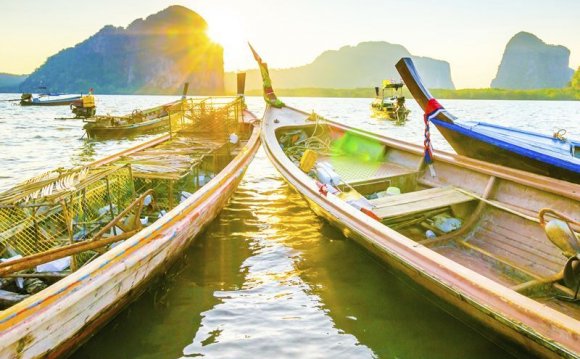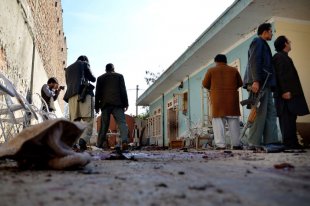
The continuing violence in Afghanistan shows capital investments are no guarantee for peace. Amid a growing feeling that peace has no chance until the ‘occupier’ leaves the Afghan soil, the U.S. must seriously think of reconciliation and include groups like the Haqqanis in talks to put an end to the 15-year-old conflict
While a number of Western officials hope for a ‘negotiated end’ to U.S.’ longest ever conflict in Afghanistan, Kabul continues to face the bleak prospects of a murderous “civil war.”

Just when the most recent round of talks was going to be held in Kabul in mid-January, a suicide attack resulted in the death of 13 innocent civilians in eastern Afghanistan. Another rocket landed near the Italian embassy in Kabul, reminding us of what was at stake and what would continue to happen.
Hence, the question: how politically wise it is on the part of the “occupying forces” to invite (or not invite) the Taliban to the negotiating table and, at the same time, keep the country under virtual occupation?
“What is the point of talks when the Taliban continue to attack and the Afghan forces keep hunting the Taliban under the supervision of Western forces, ” asked 33-year-old Najeeb Khan, once a university student of political science and now a refugee in Pakistan since early 2007.
“These various rounds of talks”, he added further, “are not meant to end the conflict but to decide the ‘size of cake’ every stakeholder can get out of it.”
And this is precisely what the recently held round of dialogue was meant to achieve. Needless to say, the Taliban were not part of it. Apart from the U.S. and Afghanistan, China and Pakistan were the other stakeholders.
The talks ended with a joint statement calling upon the Taliban yet again to cease hostile activities and become engaged in discussing ‘terms of peace’ with the official government of Afghanistan.
While the exclusion of the Taliban does make sense, given that they have under their control more territory today than ever since 2001 and that they have the direct support of one of the most notorious Taliban factions, the Haqqani network, the presence of China in these talks indicates how geo-economics is, in a way, merging with geo-strategy.
While the two are not necessarily mutually exclusive, the Chinese stakes are primarily economic in nature as the success of China’s ‘Silk road’ project is essentially linked with a peaceful Afghanistan.
Additionally, there is no forgetting that Afghanistan shares a common border with a potentially explosive Islamic region in China – the Xinjiang Uyghur Autonomous Region. Were Afghanistan to degenerate into yet another era of “civil war”, not only would it jeopardize the smooth implementation of China’s ‘Silk Road’ projects, but also turn Afghanistan into a haven for extremist outfits based in China’s troubled regions.
The ‘Chinese factor’, as it stands, is generally perceived to leave a stabilizing impact on Afghan “peace process.” What is, however, omitted is that China has already invested too much in Afghanistan to leave the country ‘alone’ in dealing with the Taliban, who in turn have also established “good” relations with China.
Among other things, Chinese investments in Afghanistan include $3 billion to $3.5 billion in the East (Aynak copper mine located in Logar province), and about $700 million in the North (oil and gas exploration located in the Sar-e-Pol and Faryab provinces of Northern Afghanistan).
According to the state-owned Xinhua News Agency, China’s overall Afghan investment has already reached $10 billion. The Afghan government will earn $808 million in exploitation rights and about $60 million per year from taxes over a 30-year period.
In the immediate context, materialization of TAPI (Turkmenistan-Afghanistan-Pakistan-India) gas pipeline, the construction of which depends on the situation in Afghanistan, has also become important for China. If built, this pipeline can solve the majority of energy security issues in the western provinces of China.
As such, there is little wonder that in late December 2015, all four member states of the project announced in Turkmenistan that they were going to proceed with the implementation of the project.
However, despite such huge investments in Afghanistan by China and many other countries, peace remains a distant reality. On the contrary, absence of peace and continuation of war is an unmistakable evidence of the futility of bringing an end to war through capital investments.
“As long as the occupier is there”, asked Najeeb, “how can we say the war is going to end?”
While we cannot expect the U.S. to withdraw completely from Afghanistan, it is equally important for the U.S. to be decidedly clearer about how it views reconciliation in Afghanistan and who it considers partners. This is critical if the combined international and Afghan aim is to win a lasting peace that extends to all 34 of Afghanistan’s provinces.
The 15 years of war have taught us enough about the improbability of winning or ending the Afghan war through the use of military force.
“The talks are strategically important for everyone involved, but are unlikely to go anywhere right now, ” S. Chandrasekharan, director of the South Asia Analysis Group, told Reuters. “The Taliban are making gains and the army is on the defensive. Until there is a stalemate, the talks are unlikely to succeed.”
A settlement, in this context, cannot take place unless the U.S. takes a decisive position vis-à-vis the Taliban it is going to talk to. The Haqqanis, as it stands, are now the most important leading faction and as long as they remain excluded, a negotiated end of the war cannot take place.
If the next round of talks to be held in Pakistan in February gets another lifeline, the U.S. may also have to re-think the UN-sponsored travel ban imposed on certain Haqqani leaders, which complicates the task of legally bringing them to any venue outside Afghanistan to negotiate.
RELATED VIDEO












